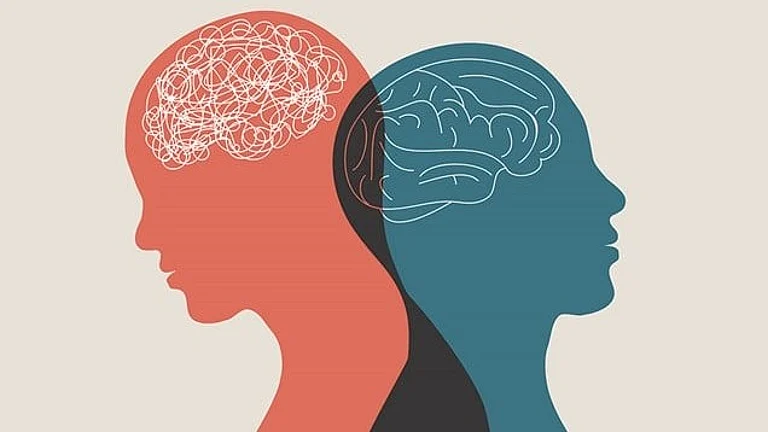The pandemic has been a revelation in many ways. To begin with, it pulled the rug from under our feet and shook us with its uncertainty. For the longest time, we didn't know the impact of the virus. Add to it, the mention of a new symptom every other day, and losing our loved ones, made it even worse. All in all, this event will go down in history for all that it inflicted upon us, both in terms of our physical and mental health.
Now here's a burning question – has all the mental stress taken a toll on our physical health? The answer is yes. A study of about 400 participants from UT Southwestern Medical Center's Wellness Program revealed that mental health problems contributed to significant weight gain.
The statistics are proof enough – on average, people gained about 4.3% of their body weight during the pandemic. What's more, at least one-third of the participants gained more than 5% of their weight.
"If people with these levels of privilege are experiencing significant challenges during the pandemic, these stresses are likely amplified in the general population," shared Dr Almandoz, who has been a primary researcher in this study.
What is it that led to this?
During the pandemic, we witnessed tectonic shifts in the way we work and live. Physical schools were replaced with online classes, offices gave way to remote working, and we were always cooped up in our homes, due to the fear of contracting the virus. At this time, our diets also went for a toss. Either we didn't eat enough or we ate all the unhealthy foods just to derive some comfort.
The worst part was that we were unable to even get exercise. Gyms were shut and stepping outside to walk was still a little concerning – all in all, our health suffered a setback. With so much stress lurking around, we really didn't know if we should survive or thrive.
Did our sleeping patterns also go for a toss?
In most cases, yes. Since we had more time to do the things we enjoy, we began to binge-watch our favourite series. Over time, this became a habit and sleep deprivation became common. It's important to remember that sleep is critical for good cardiometabolic health. If you don't get enough shut-eye, it can also impact your blood pressure or blood sugar levels. In fact, those who suffer from sleep issues often complain of weight gain. That means that obesity and sleep deprivation are linked.
The above-mentioned study reveals that those who gained the most weight also reported the highest levels of stress, anxiety, and depression. Even when other factors were accounted for, poor mental health was still associated with weight gain.
A play of hormones
When we are under stress, our bodies enter the flight or flight response. In such cases, the levels of neurotransmitters like serotonin, dopamine, and melatonin go down. Serotonin is responsible for regulating emotions and appetite, dopamine is what motivates us, and melatonin is regarded as the sleep hormone. Any biochemical changes in the body can result in mood swings, and impact an individual's dietary habits. They can also make changes in the circadian rhythm.
Overall, stress can really wreak havoc on your mental health, and in turn, cause issues in your physical state.
The last word
Dealing with the pandemic wasn't easy at all. We lost our jobs, our loved ones left us, and so much happened. It's almost like we are still finding ways to get back to life, and look for our new normal. If you have gained considerable weight during the pandemic, don't lose heart.
Be kind to yourself and take baby steps to get back to a routine. Incorporate healthy foods, move your bodies, and get adequate sleep — you will be on track soon.


























